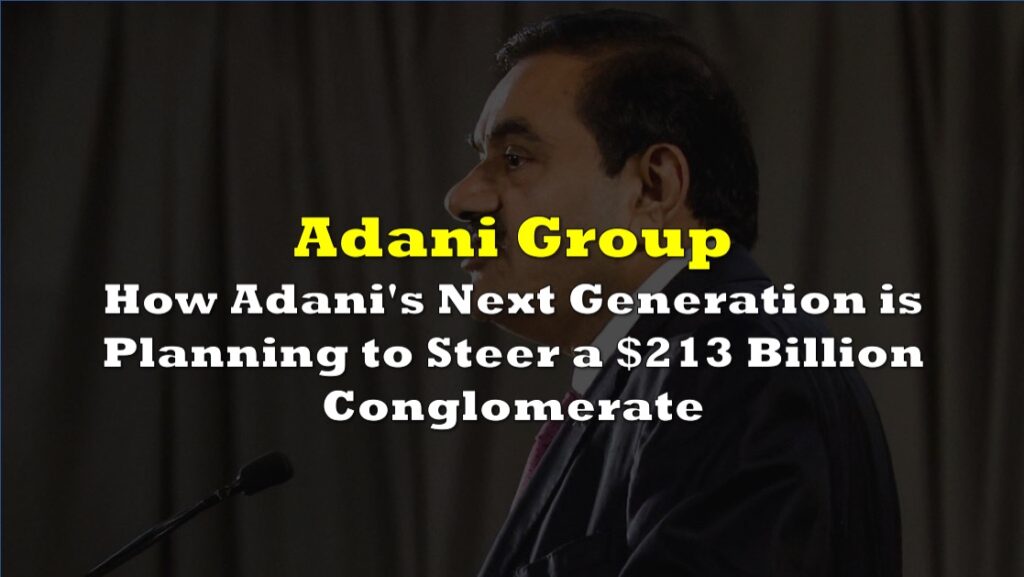Billionaire Gautam Adani, chairman of the Adani Group and one of Asia’s richest individuals, faces a landmark indictment in a New York federal court on charges of orchestrating a multibillion-dollar fraud and bribery scheme. The case, announced Wednesday, implicates the tycoon and seven other defendants in a wide-ranging scandal that could have significant global repercussions.
Adani, who controls one of India’s largest business conglomerates, is accused of paying over $250 million in bribes to Indian officials to secure solar energy contracts, misleading U.S. investors to raise billions, and violating multiple U.S. securities laws.
The charges mark a dramatic escalation in scrutiny of the Adani Group, whose rapid expansion has made it a symbol of India’s economic ambitions—and controversies.
Fraud, Bribery, and Misrepresentation
Adani and two top executives of Adani Green Energy Limited—his nephew Sagar Adani and business partner Vneet Jaain—are accused of securities fraud, wire fraud conspiracy, and violations of anti-bribery laws. According to prosecutors, the trio sought $3 billion from U.S. investors under false pretenses, touting their company’s adherence to anti-corruption standards while engaging in widespread misconduct.
The scheme allegedly involved lucrative contracts with the Indian government, awarded in exchange for bribes. These contracts reportedly generated over $2 billion in profits for Adani Green Energy and Azure Power Global, another energy firm implicated in the case.
“Gautam and Sagar Adani orchestrated a bribery scheme… to secure commitments from Indian officials to purchase solar energy at inflated rates,” the U.S. Securities and Exchange Commission (SEC) stated in its civil complaint.
The allegations mirror findings in a January 2023 report by short-seller Hindenburg Research, which accused the Adani Group of engaging in “brazen stock manipulation and accounting fraud” for decades. The report triggered a $90 billion collapse in the conglomerate’s market value, wiping out much of Adani’s net worth, which once stood at $120 billion.
In response, the Adani Group dismissed the report as a “calculated attack on India” and released a 413-page rebuttal, though critics described it as largely evasive. Hindenburg countered, asserting, “Fraud cannot be obfuscated by nationalism or a bloated response.”
Global implications
The indictment underscores risks for American investors in emerging markets. Adani Green Energy raised $175 million from U.S. entities, while Azure Power shares are traded on the New York Stock Exchange. The SEC alleges both companies misled investors about their compliance with anti-bribery laws, potentially undermining investor confidence in Indian equities.
Adani’s downfall could destabilize India’s markets. The Adani Group’s businesses span critical sectors, including energy, ports, and infrastructure. The indictment risks eroding trust in India’s regulatory environment, particularly after revelations that local regulators, like the Securities and Exchange Board of India, had long suspected irregularities but failed to act decisively.
“India’s regulatory institutions face a credibility crisis,” said Aswath Damodaran, a corporate finance expert at NYU.
This is not the first time Adani has faced legal and ethical challenges. Over the years, his conglomerate has been accused of:
- Overinflating coal prices: A Financial Times investigation revealed that Adani allegedly used offshore intermediaries to inflate coal costs, passing the expense onto Indian consumers.
- Stock manipulation: Documents from the Organized Crime and Corruption Reporting Project indicate that associates of Adani used proxies to hold shares, potentially violating Indian market regulations.
- Auditor resignations: Deloitte resigned as the auditor for Adani Ports in 2023, citing a lack of transparency in related-party transactions.
Adani’s defense
Adani continues to deny all allegations. In a statement, the conglomerate described the New York indictment as a politically motivated effort to undermine India’s economic progress.
“These claims are baseless and amount to a calculated attack on the growth story of India,” the company said.
However, critics argue that Adani has weaponized nationalism to deflect criticism, a tactic flagged by Hindenburg and echoed by opposition politicians in India.
While none of the defendants are in U.S. custody, their alleged crimes fall under U.S. jurisdiction because they involved American investors and financial instruments. The SEC has filed civil complaints against Gautam and Sagar Adani, alongside other defendants, to complement the criminal case.
The case also highlights the growing willingness of U.S. regulators to prosecute foreign actors engaging in corruption that impacts American markets.
Adani’s indictment could mark a turning point for corporate governance in India, shining a spotlight on systemic weaknesses in regulatory enforcement. As India strives to position itself as a global economic powerhouse, the scandal serves as a stark reminder of the challenges ahead.
For now, Adani’s empire teeters on the brink of collapse, raising questions about the balance between ambition and accountability in one of the world’s fastest-growing economies.
Information for this briefing was found via CNBC and the sources mentioned. The author has no securities or affiliations related to this organization. Not a recommendation to buy or sell. Always do additional research and consult a professional before purchasing a security. The author holds no licenses.









